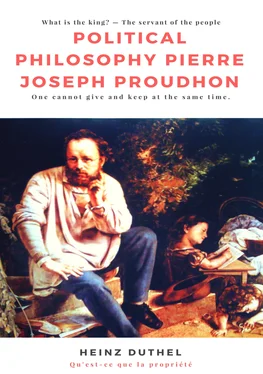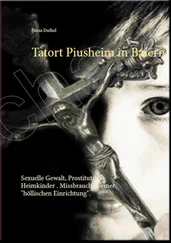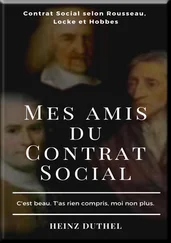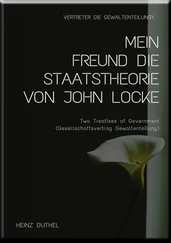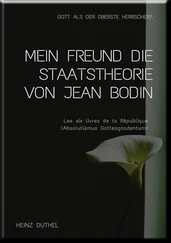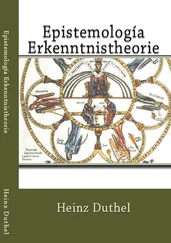1 ...7 8 9 11 12 13 ...20 Nor is that all. The nation-king cannot exercise its sovereignty itself; it is obliged to delegate it to agents: this is constantly reiterated by those who seek to win its favor. Be these agents five, ten, one hundred, or a thousand, of what consequence is the number; and what matters the name? It is always the government of man, the rule of will and caprice. I ask what this pretended revolution has revolutionized?
We know, too, how this sovereignty was exercised; first by the Convention, then by the Directory, afterwards confiscated by the Consul. As for the Emperor, the strong man so much adored and mourned by the nation, he never wanted to be dependent on it; but, as if intending to set its sovereignty at defiance, he dared to demand its suffrage: that is, its abdication, the abdication of this inalienable sovereignty; and he obtained it.
But what is sovereignty? It is, they say, the power to make law.
Another absurdity, a relic of despotism. The nation had long seen kings issuing their commands in this form: for such is our pleasure; it wished to taste in its turn the pleasure of making laws. For fifty years it has brought them forth by myriads; always, be it understood, through the agency of representatives. The play is far from ended.
The definition of sovereignty was derived from the definition of the law. The law, they said, is the expression of the will of the sovereign: then, under a monarchy, the law is the expression of the will of the king; in a republic, the law is the expression of the will of the people. Aside from the difference in the number of wills, the two systems are exactly identical: both share the same error, namely, that the law is the expression of a will; it ought to be the expression of a fact. Moreover they followed good leaders: they took the citizen of Geneva for their prophet, and the contrat social for their Koran.
Bias and prejudice are apparent in all the phrases of the new legislators. The nation had suffered from a multitude of exclusions and privileges; its representatives issued the following declaration: All men are equal by nature and before the law; an ambiguous and redundant declaration. Men are equal by nature: does that mean that they are equal in size, beauty, talents, and virtue? No; they meant, then, political and civil equality. Then it would have been sufficient to have said: All men are equal before the law.
But what is equality before the law? Neither the constitution of 1790, nor that of '93, nor the granted charter, nor the accepted charter, have defined it accurately. All imply an inequality in fortune and station incompatible with even a shadow of equality in rights. In this respect it may be said that all our constitutions have been faithful expressions of the popular will: I am going, to prove it.
Formerly the people were excluded from civil and military offices; it was considered a wonder when the following high- sounding article was inserted in the Declaration of Rights: "All citizens are equally eligible to office; free nations know no qualifications in their choice of officers save virtues and talents."
They certainly ought to have admired so beautiful an idea: they admired a piece of nonsense. Why! the sovereign people, legislators, and reformers, see in public offices, to speak plainly, only opportunities for pecuniary advancement. And, because it regards them as a source of profit, it decrees the eligibility of citizens. For of what use would this precaution be, if there were nothing to gain by it? No one would think of ordaining that none but astronomers and geographers should be pilots, nor of prohibiting stutterers from acting at the theatre and the opera. The nation was still aping the kings: like them it wished to award the lucrative positions to its friends and flatterers. Unfortunately, and this last feature completes the resemblance, the nation did not control the list of livings; that was in the hands of its agents and representatives. They, on the other hand, took care not to thwart the will of their gracious sovereign.
This edifying article of the Declaration of Rights, retained in the charters of 1814 and 1830, implies several kinds of civil inequality; that is, of inequality before the law: inequality of station, since the public functions are sought only for the consideration and emoluments which they bring; inequality of wealth, since, if it had been desired to equalize fortunes, public service would have been regarded as a duty, not as a reward; inequality of privilege, the law not stating what it means by talents and virtues. Under the empire, virtue and talent consisted simply in military bravery and devotion to the emperor; that was shown when Napoleon created his nobility, and attempted to connect it with the ancients. To-day, the man who pays taxes to the amount of two hundred francs is virtuous; the talented man is the honest pickpocket: such truths as these are accounted trivial.
The people finally legalized property. God forgive them, for they knew not what they did! For fifty years they have suffered for their miserable folly. But how came the people, whose voice, they tell us, is the voice of God, and whose conscience is infallible, — how came the people to err? How happens it that, when seeking liberty and equality, they fell back into privilege and slavery? Always through copying the ancient régime.
Formerly, the nobility and the clergy contributed towards the expenses of the State only by voluntary aid and gratuitous gift; their property could not be seized even for debt, — while the plebeian, overwhelmed by taxes and statute-labor, was continually tormented, now by the king's tax-gatherers, now by those of the nobles and clergy. He whose possessions were subject to mortmain could neither bequeath nor inherit property; he was treated like the animals, whose services and offspring belong to their master by right of accession. The people wanted the conditions of ownership to be alike for all; they thought that every one should enjoy and freely dispose of his possessions his income and the fruit of his labor and industry. The people did not invent property; but as they had not the same privileges in regard to it, which the nobles and clergy possessed, they decreed that the right should be exercised by all under the same conditions. The more obnoxious forms of property — statute-labor, mortmain, maîtrise, and exclusion from public office — have disappeared; the conditions of its enjoyment have been modified: the principle still remains the same. There has been progress in the regulation of the right; there has been no revolution.
These, then, are the three fundamental principles of modern society, established one after another by the movements of 1789 and 1830: 1. Sovereignty of the human will; in short, despotism. 2. Inequality of wealth and rank. 3. Property — above justice, always invoked as the guardian angel of sovereigns, nobles, and proprietors; justice, the general, primitive, categorical law of all society.
We must ascertain whether the ideas of despotism, civil inequality and property, are in harmony with the primitive notion of justice, and necessarily follow from it, — assuming various forms according to the condition, position, and relation of persons; or whether they are not rather the illegitimate result of a confusion of different things, a fatal association of ideas. And since justice deals especially with the questions of government, the condition of persons, and the possession of things, we must ascertain under what conditions, judging by universal opinion and the progress of the human mind, government is just, the condition of citizens is just, and the possession of things is just; then, striking out every thing which fails to meet these conditions, the result will at once tell us what legitimate government is, what the legitimate condition of citizens is, and what the legitimate possession of things is; and finally, as the last result of the analysis, what justice is.
Читать дальше
